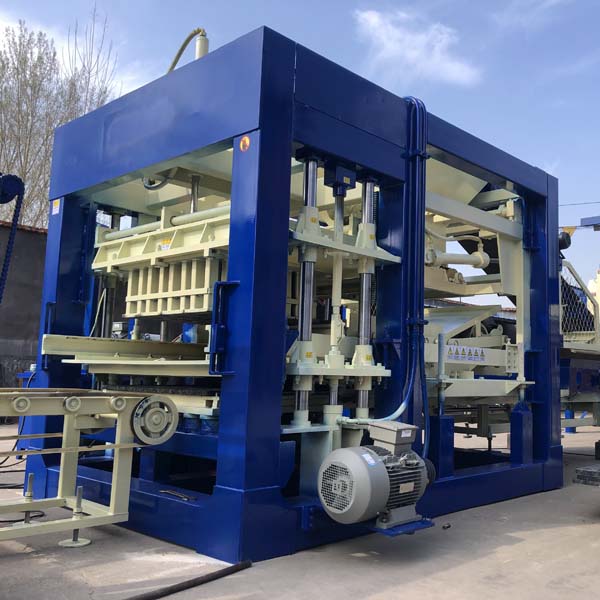
Title: Cybersecurity Measures for Protecting Business Data in the Block Production Industry
Introduction
In an increasingly digital world, the block production industry, like many other sectors, relies heavily on data and information technology for various aspects of its operations. This dependence on technology brings both opportunities and risks. While technological advancements enhance efficiency and productivity, they also expose businesses to cybersecurity threats. The protection of sensitive business data is crucial for maintaining the integrity and competitiveness of block production companies. In this article, we will explore cybersecurity measures that are essential for safeguarding business data in the block production industry.
Understanding Cybersecurity Threats
The block production industry is not immune to cybersecurity threats. Businesses in this sector store and process valuable data, such as production plans, financial records, customer information, and intellectual property, which can be lucrative targets for cybercriminals. Some common cybersecurity threats in the industry include:
1. Malware: Malicious software, including viruses, ransomware, and Trojans, can infiltrate systems and compromise data.
2. Phishing Attacks: Cybercriminals use deceptive emails and websites to trick employees into revealing sensitive information, such as login credentials.
3. Insider Threats: Disgruntled employees or contractors with access to sensitive data may intentionally or accidentally compromise the security of business data.
4. Distributed Denial of Service (DDoS) Attacks: Attackers flood a network or system with excessive traffic, causing it to become unavailable and disrupting operations.
5. Data Theft: Unauthorized individuals or competitors may attempt to steal sensitive business data.
6. Supply Chain Vulnerabilities: Third-party vendors or partners can introduce vulnerabilities in the supply chain that may compromise the security of business data.
Cybersecurity Measures for the Block Production Industry
To protect business data in the block production industry, companies should implement a robust cybersecurity strategy that encompasses various aspects of data protection. Below are key cybersecurity measures that every business in the sector should consider.
1. Employee Training and Awareness
One of the most significant vulnerabilities in any organization is its employees. It’s essential to educate and train employees about cybersecurity best practices, such as recognizing phishing emails, using strong passwords, and understanding the risks associated with mobile devices and remote work. Regular cybersecurity awareness training can help reduce the likelihood of insider threats and improve overall security.
2. Access Control and Authentication
Implement strict access control measures to ensure that only authorized personnel can access sensitive business data. Utilize strong authentication methods, such as two-factor authentication (2FA), to add an extra layer of security to user accounts. Limit access to data on a need-to-know basis and regularly review and update user permissions.
3. Network Security
Invest in robust network security solutions to protect against cyber threats. Firewalls, intrusion detection and prevention systems, and network monitoring tools can help identify and block unauthorized access attempts. Regularly update and patch network infrastructure to address known vulnerabilities.
4. Data Encryption
Encrypt sensitive data both in transit and at rest. Data encryption ensures that even if cybercriminals gain access to the data, they cannot decipher it without the encryption keys. Secure Socket Layer (SSL) or Transport Layer Security (TLS) protocols are commonly used for data in transit, while strong encryption algorithms and secure storage solutions are used for data at rest.
5. Secure Remote Work
With the rise of remote work, it’s crucial to secure remote access to business data. Implement virtual private networks (VPNs) to create secure connections for remote employees. Ensure that remote workers’ devices have up-to-date security software and are subject to the same security policies as on-site devices.
6. Backup and Recovery
Regularly back up all critical business data. Implement a robust data backup and recovery plan to ensure data availability in case of data loss due to cyberattacks, system failures, or other disasters. Test the backup and recovery process to verify its effectiveness.
7. Security Software
Utilize comprehensive security software, including antivirus, anti-malware, and endpoint security solutions. These tools can help detect and mitigate threats like malware and ransomware.
8. Incident Response Plan
Develop and implement an incident response plan that outlines the steps to take in the event of a cybersecurity breach. Having a well-defined plan can help minimize the impact of an incident and ensure a timely and effective response.
9. Regular Security Audits and Vulnerability Assessments
Regularly audit and assess the security of your IT infrastructure and systems. Identify and address vulnerabilities and weaknesses in your cybersecurity measures to stay ahead of potential threats.
10. Compliance with Data Protection Regulations
Ensure compliance with relevant data protection regulations, such as the General Data Protection Regulation (GDPR) or the Health Insurance Portability and Accountability Act (HIPAA), depending on your geographical location and industry. Non-compliance can lead to legal and financial consequences.
11. Supply Chain Security
Assess the cybersecurity practices of third-party vendors and partners in your supply chain. Ensure that they have adequate security measures in place to prevent vulnerabilities from being introduced into your network.
Conclusion
In the block production industry, where valuable data and intellectual property are at stake, robust cybersecurity measures are essential to safeguard business operations. Understanding the various cybersecurity threats, educating employees, implementing access controls, and securing network infrastructure are fundamental steps. Additionally, a proactive approach, regular security audits, and compliance with data protection regulations can help protect business data and maintain the integrity and reputation of block production companies. Cybersecurity is an ongoing effort, and staying informed about the evolving threat landscape is critical to effectively defend against potential cyberattacks.
